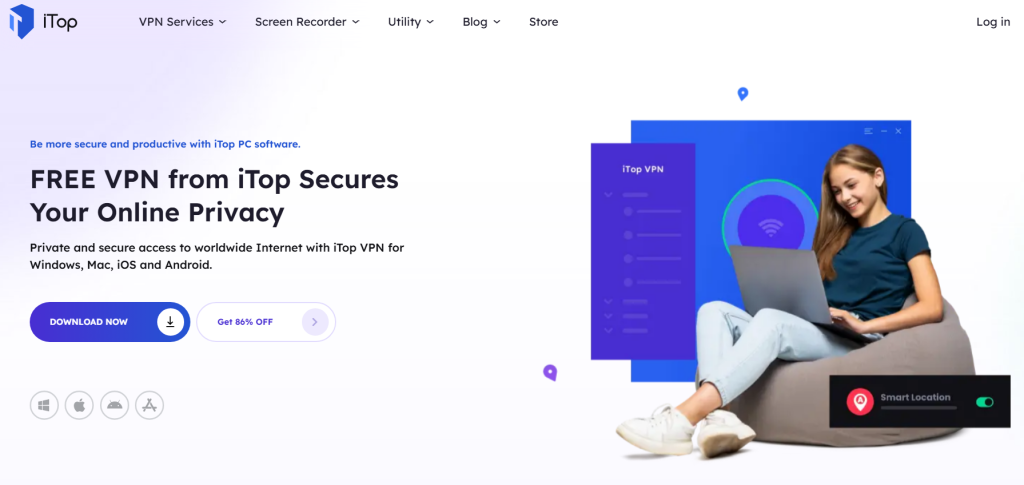Why Tech Professionals Are Turning to EdTech Tools for Personal and Team Growth

In a world where technology evolves every hour and competition is global, standing still in a career is no longer an option—certainly not in technology. For data scientists, developers, designers, and engineers, learning on the job has become better than a nice-to-have. It’s a requirement for survival. But instead of going back to school or suffering through painful webinars, most technology professionals now depend on a new crop of products to further their skills and build their teams. They are among the fast-growing universe of EdTech.
What was initially connected mainly to K–12 classrooms has become a sophisticated, highly customized setting for professional development in a matter of years. Engaging, adaptive, and targeted to working professionals, EdTech platforms of today are far removed from their past equivalents. For technology professionals, they are an agile, effective, and even cutting-edge way of staying at the forefront.
Learning That Moves at the Speed of Innovation
In technology, transformation is not a disruption—it’s the new normal. Languages evolve. Frameworks are updated. Security protocols change. With every product release or API update, the requirements placed on technology specialists become more advanced. EdTech solutions help them keep up by providing targeted learning experiences that adjust in real time to these technology evolutions.
Rather than attending hours of lengthy seminars or waiting for their firms to get on board with outdated corporate training modules, developers now can leap directly into micro-courses, skill-based challenges, or team-based coding challenges that are relevant to current industry trends. Learning becomes something that happens in motion, not pause—naturally worked into a workday or a sprint cycle.
What is so powerful about it is that it is self-directed. Tech professionals aren’t required to wait for their employer to provide training. They can assess their own gaps themselves, select tools that suit their learning style, and develop mastery at their own pace. That kind of self-discipline is not only successful but also exhilarating, especially for people who thrive on momentum.
A Culture of Growth Starts With Tools
The most forward-thinking tech companies know that innovation isn’t just the result of great ideas—it’s the byproduct of a culture of learning. And culture starts with tools. Once good-quality EdTech platforms are in the hands of teams, learning is no longer an individual pursuit but a shared habit.
It’s now commonplace to see product teams integrating learning right into their workflows. Engineers might be devoting some portion of their sprint to learning about new Kubernetes functionality. Designers might be engaging in live critique sessions on emerging UX trends. Data teams might be developing their Python skills in real-time challenge environments. These are no longer individualized activities—they’re team-based and outcome-driven.
Interestingly, EdTech platforms’ tech teams are not choosing generic ones. They are job-specific, with exercises based on the very systems they work in. This relevance is what makes all the difference. Training is no longer theory alone—it is practice. And the effect is not just reflected in individual growth but also in team velocity, communication, and work quality.
Much of this learning environment is also propelled by peer interaction. Professionals don’t merely consume content—they contribute to it. They offer feedback, share insights, and, in many cases, begin to mentor others. For those looking to step into teaching roles or thought leadership, platforms that support this kind of engagement offer a natural next step. If you’re one of them, you can apply here to teach, mentor, and collaborate in a high-performance education space built specifically for global tech professionals.
Beyond the Code: Developing Leadership and Soft Skills
With advancing developers into more senior roles comes a change of needs. It is not about writing pretty code or dealing with databases anymore. Communication, guiding others, handling stakeholders, and leading teams equally come into consideration. But it is the exact skills that come to be underemphasized in traditional training schemes.
EdTech fills this gap, offering courses and simulations to build emotional intelligence, conflict resolution, and decision-making under pressure. For product leads, engineering managers, and CTOs, this kind of learning is invaluable. It not only allows them to execute projects, but to manage people—something increasingly determines success in tech careers.
Those platforms that are doing it know that learning must mirror the actual world. That is why they use real-world case studies, interactive roleplaying, and feedback on performance that enables learners to practice soft skills as consciously as they practice technical ones. For companies, it means more effective managers. For individuals, it means career growth that can endure—not just moving to the next step up, but actual preparation for the accountability that comes with it.
Democratizing Access to Global Expertise
Arguably most overlooked is that EdTech bridges economic and geographic disparities. The genius Cairo coder can learn together with the peer in Berlin from the same masters. The UX designer in Manila can participate in project-based courses with subject matter experts in London. Education, which once was located in specific cities or institutions, now is disseminated globally.
This democratization matters. It prevents good ideas, tools, and innovations from being trapped behind university walls or corporate budgets. Anyone with an axis of connection and a will can level up—and that’s disrupting the math of global talent pipelines.
It’s also changing hiring. More and more, businesses are open to skill-based hiring practices, valuing performance on EdTech platforms as a true measure of capability. A portfolio built up through project-based learning, peer-reviewed assignments, or teaching experience on EdTech platforms may be more powerful than a degree—especially in remote-first companies where actual skill trumps traditional credentials.
Future-Proofing Careers in a Fast World
The one thing that’s certain in technology is change. Technology that is current today could be obsolete a year from now. EdTech not only assists professionals in staying current—it equips them with an attitude of adaptability. It prepares them to approach learning as a part of normal work, not as something reserved for off hours or scheduled training days.
For business leaders, it means building more engaged, flexible, and responsive workforces. For professionals, it means future-proofing their own job. It also creates opportunities for specialization, side businesses, or even career transition—without needing to put everything on the backburner and “go back to school.”
Ultimately, EdTech is redefineing what growth tastes like in technology. It’s not vertical—it’s multi-dimensional. It’s not fixed—it’s personalized. And it’s not singular—it’s communal.
The Evolution Continues
As more tech pros turn to EdTech for personal and team growth, the platforms themselves are evolving. They’re becoming more immersive, more personalized, and more integrated into how we work—not just how we learn. AI-driven recommendations, peer-to-peer networks, and adaptive testing are making the experience feel less like school and more like mentorship.
One thing that is certain is that EdTech is no longer a choice—it’s an intrinsic part of the way that leading tech pros grow. And as the boundaries between work, learning, and teaching keep on fading away, the prospects for those who embark on it are only increasing.






